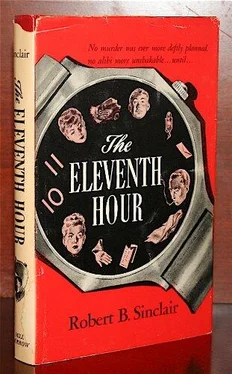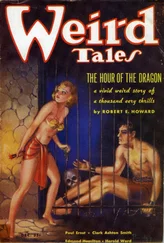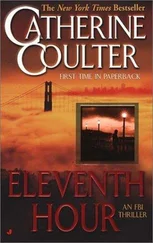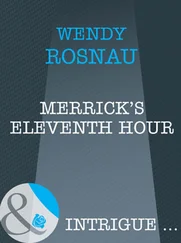Robert Sinclair - The Eleventh Hour
Здесь есть возможность читать онлайн «Robert Sinclair - The Eleventh Hour» весь текст электронной книги совершенно бесплатно (целиком полную версию без сокращений). В некоторых случаях можно слушать аудио, скачать через торрент в формате fb2 и присутствует краткое содержание. Город: New York, Год выпуска: 1951, Издательство: M.S. Mill Co. and W. Morrow, Жанр: Детектив, на английском языке. Описание произведения, (предисловие) а так же отзывы посетителей доступны на портале библиотеки ЛибКат.
- Название:The Eleventh Hour
- Автор:
- Издательство:M.S. Mill Co. and W. Morrow
- Жанр:
- Год:1951
- Город:New York
- ISBN:нет данных
- Рейтинг книги:3 / 5. Голосов: 1
-
Избранное:Добавить в избранное
- Отзывы:
-
Ваша оценка:
- 60
- 1
- 2
- 3
- 4
- 5
The Eleventh Hour: краткое содержание, описание и аннотация
Предлагаем к чтению аннотацию, описание, краткое содержание или предисловие (зависит от того, что написал сам автор книги «The Eleventh Hour»). Если вы не нашли необходимую информацию о книге — напишите в комментариях, мы постараемся отыскать её.
An abridged version of this novel has appeared in
Oct 1950 under the title “Design for Death”
The Eleventh Hour — читать онлайн бесплатно полную книгу (весь текст) целиком
Ниже представлен текст книги, разбитый по страницам. Система сохранения места последней прочитанной страницы, позволяет с удобством читать онлайн бесплатно книгу «The Eleventh Hour», без необходимости каждый раз заново искать на чём Вы остановились. Поставьте закладку, и сможете в любой момент перейти на страницу, на которой закончили чтение.
Интервал:
Закладка:
Robert B. Sinclair
The Eleventh Hour
Chapter one
It was damp, it was cold; smog filled the air and rasped at the eyeballs even indoors; it was everything a day in April should not be. Arthur Conway, as he came downstairs to breakfast, ruefully acknowledged that Los Angeles could serve up as dismal weather as could be found anywhere in the world. He had planned to get out: to take a lunch, drive up in the hills, and hike until nightfall. Any day, now, there should be word about the two stories, so he could afford to loaf a bit — get out, get a little fresh air. It seemed absurd, but he had got less exercise out here than in New York; nobody walks in California, and walking was the only form of physical exertion he enjoyed.
But in weather like this, it was out of the question; even the alternative, a day in the house with Helen, was preferable. It meant, of course, that he would at least have to make a pretense of writing.
He saw them the instant he walked into the dining room: the two manila envelopes alongside his place at the table. There was no need to open them; he knew what they were. And from the way they were displayed, it was obvious that Helen knew too. She had finished her breakfast, and he could hear her in the kitchen; he realized he would have to face her, and he knew it would not be pleasant. He had had high hopes for these stories, and it was depressing to have them rejected, but his disappointment was secondary now to his concern at the prospect of the galling scene he knew was coming.
“Two more masterpieces come home to roost, I see.” He had not heard her come in from the kitchen, and now she was standing over the table, her contemptuous glance divided between him and the envelopes.
“These are the ones you were sure of, aren’t they?” she continued. “These would bring in enough so you’d have time to write some good stories. And even the pulps won’t buy your stuff.”
“I’m sorry. I tried.” That was the extent of his defense.
“You tried...” The vitriol dripped from her voice. “You haven’t written a line since you finished these. It took you three months to get this tripe on paper. Oh well, what’s the difference? Most of the time you don’t write at all, and when you do it’s no good.”
“I can’t write this junk any more.” His voice rose; he knew he shouldn’t let her get under his skin, but he seemed powerless to prevent it.
“Any more! When could you? You were going to do this stuff just long enough to get a stake — so you’d have time for that novel and that play and all the rest of the things you talked about — and I believed. Well, at least you’ve stopped talking about them.” Her voice dropped, and now her contempt became lethal. “You’ve stopped talking, and writing, and thinking — and living, as far as I’m concerned.”
She picked up some dishes and went into the kitchen. When she did not return, after a moment, Conway took advantage of his opportunity to escape. He caught up the newspapers and started for his room, but her voice followed him.
“What shall I do with these manuscripts? Put ’em where they belong — in the—” He closed the door to shut out the rest.
He was safe in his room. She wouldn’t follow him there; that was one of the few things — one of the very few — that remained from the first days of their marriage. They had met just after the war and married a month later. Any sort of apartment was almost impossible to find, but Helen had insisted they must have three rooms so that he might have a “study” where he could work without interruption. Somehow or other she had found one, and she lived up to the rule she made herself — never to enter, or even to knock, when the door was closed. She had continued to live up to it for some reason. And that was about all that remained of those gay, desperately hopeful days when they had faith in each other — and in themselves.
They had occasionally quarreled in those days, too, of course, and usually about the same thing: Conway’s failure to sell a story, or what she called his laziness. As she was apt to consider anything less than eight hours a day at the typewriter laziness, some violent disagreements ensued. But in the fervid reconciliation that always followed so quickly, she was full of remorse for her outburst; it was, she explained, because, having no ambitions for herself, she was so terribly ambitious for him.
Conway sat down to finish the papers, but his eyes fixed on the photograph which stood on his desk. She had had it taken, at his request, shortly before they were married, and it was on the desk because it had always been there; now it took up space and was in the way and it disturbed him to have to look at it — but to move it would have been an overt act. She had been blonde then, with a handsome figure and large, intense eyes. She hadn’t changed much, Conway reflected — or, rather, she’d changed in degree but not in kind. She was not only still blonde, she was considerably more so. Her figure remained good, but it was verging on heaviness, although that, perhaps, was a matter of taste, and some might call it voluptuous. Her eyes were even more intense; to Conway, at times, they were frighteningly so.
And now, although it had never been said in words, they were through. It surprised Conway that she had not already left him, although he thought he knew the reason. But he would have to wait for her to make the break; she was not a woman to allow any man to discard her.
He got a cigarette from the dresser and stopped to gaze into the mirror. He saw a man of thirty-two, who looked older, with a well set up body, hair that was thinning slightly at the temples, and a skin which would have seemed pale even in New York. His pallor was typical of the frustrations he had met with since they had come here, and he wondered how much California had had to do with what had happened to Helen and himself. Not much, he decided; they had begun to get on each other’s nerves in New York. That had been one of the reasons Helen had wanted to come out here two years ago; she had said that if he could be out of doors more, he might feel better and work better. But, as it turned out, when he proposed taking a day off, she complained bitterly, so that he neither felt nor worked better, and their relationship had steadily become worse. And as it did, Conway’s writing became more laborious and less frequent — and less salable. It was a vicious circle, and — Conway realized that he was about to wallow in self-pity; he made himself acknowledge that the reason he hadn’t been writing, and wouldn’t write today, was because he hadn’t an idea in his head. He picked up the papers again and began to read, with a forlorn hope that he might come on an idea out of which he could, somehow, make a story.
There’s one thing to be said for the Los Angeles papers, he thought as he looked through them, they never let you down. No matter how low you may be, in body or spirit, a brief contemplation of the gallery of unfortunates presented daily in the press must make your own lot seem sheer bliss.
It appeared to be about an average day. “Couple Robbed in Parked Car,” with hints of darker deeds. “Nude Woman Dancing in Park Eludes Police” — that, he thought, was a new low even for the Los Angeles gendarmerie. “Waitress Slain by Sex Fiend” — a regular weekly occurrence; they must keep a standing headline for that one. Conway wondered if the police would ever capture one of these maniacs, who seemed to make up a sizable portion of the population of Southern California. To the best of his knowledge they never had. “Main St. Bars Raided; Two B-Girls Arrested.” A blind man on Main Street at any given moment after 10 P.M. could find twenty B-Girls with their hands in someone’s pockets, but the police found two, so things must be looking up. “Wife Who Vanished from Parking Lot Found in Motel with 16-Year-Old Boy; Husband to Seek Divorce.” Conway never ceased to be amazed at what precocious juveniles they breed in California.
Читать дальшеИнтервал:
Закладка:
Похожие книги на «The Eleventh Hour»
Представляем Вашему вниманию похожие книги на «The Eleventh Hour» списком для выбора. Мы отобрали схожую по названию и смыслу литературу в надежде предоставить читателям больше вариантов отыскать новые, интересные, ещё непрочитанные произведения.
Обсуждение, отзывы о книге «The Eleventh Hour» и просто собственные мнения читателей. Оставьте ваши комментарии, напишите, что Вы думаете о произведении, его смысле или главных героях. Укажите что конкретно понравилось, а что нет, и почему Вы так считаете.












